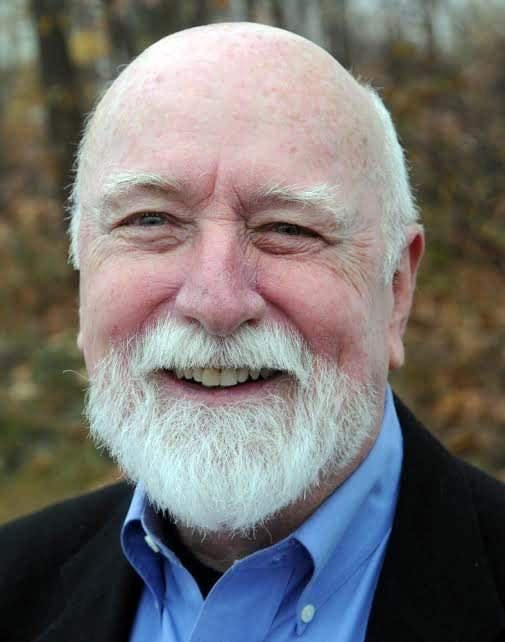The Observer: The York Diversity Forum 20 years on
- Oops!Something went wrong.Please try again later.
“The Nature of Prejudice,” published in 1954, is among the most influential books ever written by an American psychologist. Its author, Gordon Allport, defined prejudice as “antipathy based upon a faulty and inflexible generalization. It may be directed,” he said, “toward a group as a whole, or toward an individual because he is a member of that group.”
Probably the best-known component of Allport’s book was a scale he developed to assess the level of prejudice that exists in a society. His five-stage scale begins with low-level and apparently harmless speech, which he calls anti-locution (e.g., racist jokes).

His scale then goes on to identify more extreme and more damaging expressions of prejudice: avoidance (e.g., informal social exclusion), discrimination (e.g., Jim Crow laws), physical attack (e.g., the Tulsa race massacre), and, finally, extermination (e.g., genocidal policies such as the Holocaust).
This scale helps put discriminatory attitudes and actions in context and may even suggest a way to reduce our prejudices. Allport says, “People who are aware of, and ashamed of, their prejudices are well on the road to eliminating them.” Eliminating them, of course, is the goal of an equitable and fair society. It is also the goal of a local organization here in York.
The Observer: Taking in the sights, sounds and smells of a bike ride in York
The York Diversity Forum (YDF) was founded in York twenty years ago by a group of community members who were disturbed by incidents in York that reflected bias, prejudice and hate. Since its founding in 2003, the YDF has sponsored many events that could help people to recognize and counteract prejudice. The YDF has organized lectures, workshops, films, and other programs to help people re-educate themselves about “the other.” It has held programs on race and racism, ethnicity, religion, sexual orientation, gender identity and disability among other topics.
The 2023 YDF project involves a series of programs centered on race and, in particular, on the centuries-long impact of slavery in Britain’s North American colonies as well as in contemporary U.S. society. The core inspiration for the series is The 1619 Project, a work that has generated considerable debate among historians. 1619 was published to commemorate the 400th anniversary of the arrival of the first enslaved Africans in colonial Virginia.
The Observer: What if we've got it wrong about climate change?
The entire program is made up of different ways of exploring the impact of prejudice and bias. It is a multi-faceted and multi-media series that will run from October through December in the York Public Library. Here is what you’ll want to know:
October 5 (Thursday) 5 to 7 p.m. “There are Many Ways to Tell a Story.” This kick-off discussion led by Julie Weiss, will provide an overview that will review the historian’s craft and explore the implication of the 1619 Project on contemporary American politics.
October 19 (Thursday) 7 to 9 p.m. “Invisible Imprints.” A documentary film and discussion by performing artists from the Boston Dance Group, Beheard.world.
November 2 (Thursday) 5 to 7 p.m. Art reception and lecture by Robert Shetterly. A talk by Robert Shetterly launches a showing of Shetterly’s portraits from his “Americans Who Tell the Truth” series which will be on display through December.
November 16 (Thursday) 5 to 7 p.m. “Law & Disorder, Crime and Punishment from 1619.” A panel discussion on the origins, history, current realities, trends, legislative, and efforts to reform the criminal justice system.
December 7 (Thursday 7 to 9 p.m. “Truthtellers: A Documentary about American Courage.” A documentary film will be shown about Robert Shetterly’s chronicle of the lives of courageous Americans fighting for racial equity, climate justice and indigenous rights.
If Gordon Allport were alive today — he died in 1967 — I’m sure he would want to be at the York Public Library for every part of this YDF program. The series thoughtfully put together by the York Diversity Forum would constitute just the sort of remedy Allport advised if we want to combat our prejudices.Allport once said: “If a person is capable of rectifying his erroneous judgments in the light of new evidence he is not prejudiced. Pre-judgments become prejudices only if they are not reversible when exposed to new knowledge.” So, here are five ways we can inform ourselves about American history, educate ourselves about the different ways there are to tell the same story, identify some sources of our own prejudices and begin to eliminate them from our lives.
Ron McAllister is a sociologist and writer who lives in York.
This article originally appeared on Portsmouth Herald: The Observer: The York Diversity Forum 20 years on
